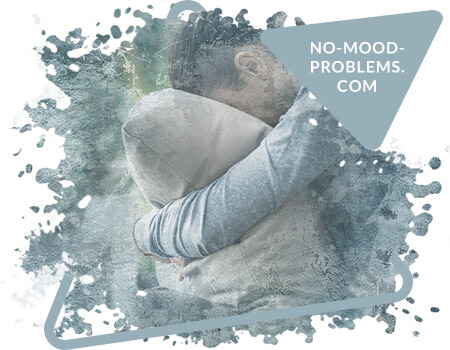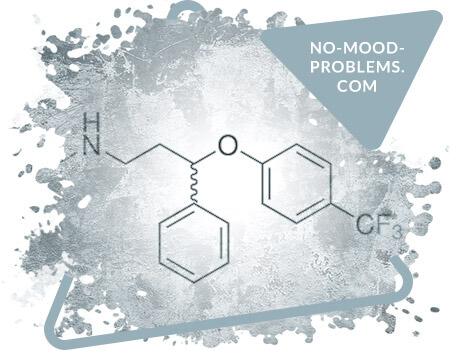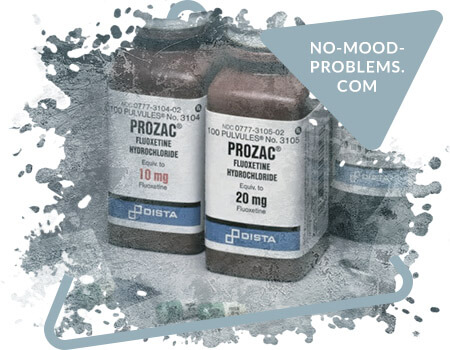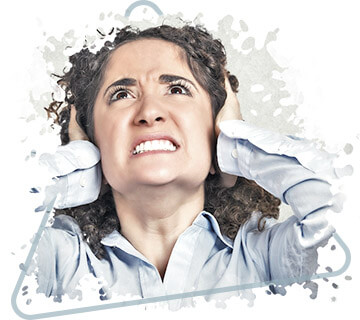Fluoxetine: The First Serotonin Reuptake Inhibitor
Since the first drug for the treatment of depression emerged, millions of dollars have been invested in the development of effective alternatives to improve the mental state of people suffering from such diseases. Most studies sought to create drugs that had a more potent effect, one that would last over time, but also one with less side effects.
Fluoxetine was one of the drugs that brought about a significant change in the world of antidepressants, as it had very few adverse effects and was generally well tolerated by the people who used it. Compared with other drugs, the difference was huge, but that was not the only point in its favor.
Fluoxetine is specific, meaning that it only acts on one receptor, causing (in this case) inhibition of serotonin reuptake. Other drugs are usually dual or at least have a significant effect on other neurotransmitters such as noradrenaline and dopamine, causing bothersome or harmful adverse effects.
Serotonin has an intrinsic relationship with mood and the whole sector that regulates our emotions in our body. This physiological effect interested scientists and encouraged them to test a drug with as much future as fluoxetine in millions of studies. It all led to the discovery of the precise pharmacological mechanism of this drug.

These changes go beyond what we have explained, which is why Fluoxetine seems to be indicated in many other diseases, although all in the psychiatric range. Even in diseases that go much further, such as those that cause eating disorders (because it regulates appetite). This generates even more interest, due to the possible therapeutic effect it has on obesity and some psychiatric problems related to eating such as bulimia and anorexia nervosa.
Mechanism of Action - How Fluoxetine works
For us to properly understand the mechanism of action of fluoxetine, let's go back a few minutes. The first question we should ask ourselves is how does serotonin work?
Serotonin is a neurotransmitter also known as 5-HT (5-hydroxytryptamine). It originates from the transformation and metabolization of an amino acid called tryptophan, and it intervenes in thousands of processes in our body, linked directly or indirectly to functions not related to the central nervous system.
Scientists catalogue serotonin as a neuromodulator: the molecule that can alter the regulation of the functioning of our neurons, through diverse molecular mechanisms that we will explain little by little. It is necessary to emphasize that this neurotransmitter is closely related to the control of mood, perception, reward, anger, aggression, appetite, among other higher and conventional brain functions.
Each neuron communicates with the other through something called "synaptic space". In it, neurotransmitters are released from the termination of one of the neurons (neuron A), to the beginning of the next (neuron B). In this space the neurotransmitters travel from A to B and lodge in receptors to send a signal. This is the way the neurons communicate.
However, once the serotonin has travelled to the other neuron and delivered its message, it must return to the original neuron for it to "recapture" it, which means that we will reuse it when possible. In this way, the body is not overloaded with the production of abnormal serotonin in our body, but resolves it almost by itself, making the reuptake.
The real problem comes when there is depression. According to millions of available studies, depression affects serotonin levels, causing them to drop and worsening people's moods at a frenetic pace. It can even have other effects that we will be explaining later, although the main theories are that it has a genetic component and that there are social disorders that can also trigger it.
Fluoxetine is perfect for this situation. The inhibition of selective reuptake means that fluoxetine blocks the receptors responsible for the re-entry of serotonin into the neuron, increasing the amount of the neurotransmitter in the synaptic space, which creates more powerful stimuli that make up for the deficit of serotonin despite the fact that the amount is the same.
This effect boosts the mood and each of the actions related to the use of serotonin, so it is an excellent option for the treatment of diseases (especially psychiatric) where it has been determined that the primary cause is the absence or deficit of this neurotransmitter.
According to many scientific studies that emerged after the creation of this drug, fluoxetine can increase the half-life of serotonin up to 2 or 4 days, which means that it has a long therapeutic effect. The same drug also has a similar duration, then it is processed and metabolized by the liver.
There are other secondary receptors on which this drug also has action, which are 5HT2A and 5HT2C. These have a slight activity on selective noradrenaline reuptake, which is never highlighted as a possible threat with the use of this drug. If the reuptake inhibition were moderate or severe, very strong adverse effects would be observed that would not allow us to use this drug normally on depressed patients or other diseases.
It should also be noted that fluoxetine may have some inhibitory activity on some cytochrome p450 isoenzymes. This means that some drugs or foods were not well tolerated, because they could not be metabolized normally in the liver, due to the secondary action of Fluoxetine on our body. We will go into more detail about what this effect is really about.
Indications of Fluoxetine
Although we have been talking about depression, and we will continue to do so, we must know that this is not the only reason the doctor will use this drug. Among the most frequent and important indications of fluoxetine we have:
Fluoxetine and Norfluoxetine Plasma Concentrations of Depressed Patients, According to Patient Characteristics
| Fluoxetine (ng / ml) | Norfluoxetine (ng / ml) | Sum (ng / ml) | Fluoxetine / Norfluoxetine Ratio | ||||||
|---|---|---|---|---|---|---|---|---|---|
| Group | N | Mean | SD | Mean | SD | Mean | SD | Mean | SD |
| All patients | 615 | 97 | 51 | 128 | 49 | 225 | 80 | 0.9 | 0.7 |
| Women | 418 | 108 | 53 | 135 | 50 | 243 | 81 | 0.9 | 0.7 |
| Men | 197 | 75 | 36 | 113 | 44 | 188 | 64 | 0.8 | 0.7 |
| Unipolar | 566 | 97 | 50 | 128 | 48 | 224 | 77 | 0.9 | 0.7 |
| Bipolar | 49 | 104 | 56 | 130 | 63 | 234 | 110 | 0.9 | 0.6 |
| Chronic | 315 | 94 | 50 | 127 | 49 | 221 | 77 | 0.8 | 0.7 |
| Nonchronic | 300 | 101 | 51 | 129 | 50 | 230 | 83 | 0.9 | 0.7 |
| Melancholic | 143 | 103 | 55 | 129 | 52 | 232 | 86 | 1.0 | 0.9 |
| Nonmelancholic | 472 | 96 | 49 | 127 | 48 | 223 | 78 | 0.9 | 0.7 |
| Smoker | 158 | 88 | 47 | 119 | 48 | 207 | 79 | 0.8 | 0.6 |
| Nonsmoker | 457 | 101 | 52 | 131 | 49 | 232 | 79 | 0.9 | 0.8 |
Major Depression
Depression is one of the most common diseases of our time. Lately it has been getting more publicity and attention for mental health, but cases continue to rise. This means that our lifestyle and the behaviors we take are deteriorating, and with it, us. Although much has been made of the effect and magnitude of depression, the truth is that we still know little about it.
In order to use fluoxetine in major depression, millions of studies were conducted that used that drug alone and created a record of its significant effect on the illness, but other studies were also conducted that compared it to the most effective options on the market at the time. Fluoxetine tended to emerge victorious from these comparisons, having a cleaner and more significant effect than the other options.
The therapeutic option that came before fluoxetine was tricyclic antidepressants. No one questioned that these drugs had a beneficial effect on depression, however, the changes in symptoms of the illness were not as significant as with fluoxetine. The decline in the various depression scales used determined that more than 90% of patients improved dramatically with selective serotonin reuptake inhibitors.
All this, without leaving aside the fact that fluoxetine has fewer adverse effects, so it has a higher attachment index and makes drug therapy easier.
Even so, it is preferred to be used only in mild or moderate cases of depression, leaving other drugs with a deeper effect for severe cases, where there may be other associated symptoms or diseases that trigger even psychosis in patients.
Even so, it is preferred to be used only in mild or moderate cases of depression, leaving other drugs with a deeper effect for severe cases, where there may be other associated symptoms or diseases that trigger even psychosis in patients.
Of course, it is not the only type of depression that can be treated with this drug. There are many aspects of this mental disorder, which also base their physiopathology on alterations of serotonin, so fluoxetine can be of great help. One of these cases is bipolar depression, a rather delicate and complicated pathology, which is usually treated with this SSRI in conjunction with some other antipsychotic, such as olanzapine.
Anxiety Disorder
Anxiety disorder has several subtypes, there is generalized anxiety, panic disorders, social phobia, etc. Not all require treatment with drugs, as psychotherapy has been shown to be effective in all of them. However, in complicated cases or especially in generalized anxiety and panic disorders, joint therapy with fluoxetine may be helpful.
This type of illness is quite common, like what happens with depression, especially in people who are subjected to high amounts of everyday stress, which is the most important trigger for these disorders.
Fluoxetine has been shown to decrease the severity of symptoms associated with generalized anxiety, including the magnitude of symptoms triggered by the onset of a panic attack. Some claim that it can reduce the incidence of panic symptoms, although slightly higher doses are often used. However, the FDA calls it a viable and appropriate option for these conditions.
Obsessive Compulsive Disorder
According to the WHO, obsessive-compulsive disorder is among the top 20 disabling diseases in general (not just mental), with a prevalence of about 0.8%, which is a frighteningly high number. It is included in the five most frequent psychiatric diseases. OCD patients tend to have a rather poor quality of life, since they live with continuous symptoms that interfere directly or indirectly with their day.
This is a disorder characterized by persistent, recurring thoughts that are far from meaningful to many people. Some associated symptoms are restlessness, fear, worry, and the famously repetitive behaviors aimed at "calming" the impulses that come with every obsession.
The most used drugs are selective serotonin reuptake inhibitors, especially fluoxetine and a close relative called paroxetine. Major studies have shown that these drugs have an effectiveness that can exceed 90% in some cases, depending on the patient and the possible complications that accompany it.
Remember, a psychiatric illness is often complicated by another psychiatric illness. In fact, OCD is closely related to depression, so they often occur together. This gives more weight to the reasoned use of drugs like fluoxetine.
Bulimia Nervosa
Bulimia is also a caring psychiatric disorder whose incidence has risen in the last 20 years, since the spread of internet use. As mentioned earlier, serotonin is a neurotransmitter involved in appetite control at the central level. For this reason, SSRIs were considered a cost-effective and useful option for the treatment of bulimia nervosa.
However, for treatment to be effective, supervision by a medical specialist is required of the patient who is using it. In addition, it must be in conjunction with psychotherapy and another set of specific therapies.
How to take Fluoxetine
Fluoxetine usually comes in a delayed-release capsule form, which means that part of the drug is gradually released into the intestine, which helps with the long half-life mentioned above (2-4 days). Some companies may sell it as a liquid solution to be taken, but the dosage is quite different.
Fluoxetine can be taken with food, without any problem, it will not affect its absorption. These capsules or tablets should be taken once a day or twice as directed by your doctor. If taken twice a day, the second time should be in the afternoon, in relation to your last meal.
Even so, your doctor may decide not to use it every day but every day or a few times a month. It all depends on the type of therapy, your pathology, the relationship with the psychotherapy sessions and other variables that your doctor should consider.
Another important detail is that antidepressant therapy is usually prolonged, taking a minimum of 12 weeks in most cases. Depending on the type of pathology you suffer from, this will probably be extended by a few more weeks, even for a year. Finally, it should be noted that the effect of antidepressants only appears a few weeks after their use, approximately two weeks, so it is useful to use some other drugs that have a faster effect or that allow you to start therapy and endure the time when fluoxetine will not have a good effect.
Adverse Effects and Precautions - The Negative Side of Fluoxetine
Although there are several adverse effects, it is necessary to highlight that Fluoxetine is one of the drugs with less secondary impact on our body compared to other drugs, especially those used in the psychiatric field.

Even so, paradoxically, it continues to have adverse effects even related to some diseases it tries to appease. We will explain a little about these and when they occur. Among the most frequent adverse effects we have:
- Mental: it can cause anxiety and nervousness. Although fluoxetine is used in illnesses such as generalised anxiety disorder, in the first phase of administration (before the real effects appear) it can cause anxiety and nervousness. For this reason, specialists often use other drugs that temporarily postpone symptoms until flouxetine takes effect, such as low-dose benzodiazepines.
- Sleep: Fluoxetine often has a certain sleep component as well. Remember that serotonin is a neurotransmitter involved in these processes, and depression can cause insomnia or sleepiness on its own. However, these effects are usually rare, fluoxetine often helps to restore the cycle and pattern of conventional sleep.
- Gastrointestinal: Many drugs have an impact on the gastrointestinal system, and fluoxetine is no exception. This drug can cause nausea, vomiting, diarrhea, constipation, loss or increase of appetite, among other manifestations. It is necessary to emphasize that they usually present as mild symptoms that do not really compromise the attachment to the drug in most cases.
- General: there are other symptoms that may occur such as weakness, weight loss, headache, confusion, problems concentrating and even mild memory disorders. As we mentioned before, these are usually mild effects, so they do not compromise adherence to the drug. In many cases it is possible to use combination therapies to appease these side effects.
Some other manifestations on our body after the use of Fluoxetine may require a visit to the doctor, especially in those patients who are using it for the first time. Within this group of signs and symptoms we have:
- Cardiovascular alterations: not only palpitations or tachycardia, we have to be aware of possible irregularity of the heartbeat or chest pain. In addition, if we perceive that a limb is not receiving good blood flow (no pulse, cold limb), we need to go to the emergency room.
- Swelling: anything that increases in volume can be a good excuse to go to the emergency room as soon as possible. The biggest problem is that it may be a secondary allergic reaction, caused by the medication. This is life-threatening and should be treated as soon as possible. Other signs of an allergic disorder are rash, itching, fever, etc.
- Psychotic: The patient is likely to experience hallucinations in conjunction with loss of coordination and other specific neurological symptoms. In this case, it is necessary to use antipsychotics before the reaction worsens. It is not directly life-threatening, but it is threatening to everyone around the patient.
- Other warning signs to watch for in the emergency room are syncope, seizures, difficulty breathing or swallowing, bleeding, etc. Even so, your doctor will make certain specific recommendations depending on your case and associated comorbidities.
Contraindications - When is NOT possible to use Fluoxetine
What we mentioned above are adverse or side effects, some alterations that do not directly prevent the use of the drug but arise as a secondary alteration. However, there are some reasons under which the use of Fluoxetine is not correct. Among these we have:
- Hypersensitivity: it is necessary for your doctor to start with low doses of Fluoxetine to determine whether you are allergic to this drug. As mentioned above, signs that may indicate that you are allergic to fluoxetine include swelling of the tongue, throat, or other parts of the body. In addition, other side effects such as rash, itchy, or fever may also suggest that something unusual is happening.
- Liver Deficiency: We also mentioned earlier that one of the characteristics of the pharmacokinetics of fluoxetine was that it was metabolized in the liver, and even interfered with the metabolism of some other drugs or foods. Therefore, if there is any liver disorder that prevents the natural metabolism of fluoxetine, this will only cause it to accumulate harmfully within our body and create a prolonged effect that can be very risky.
- MAOI co-use: Some of the drugs that are related to liver metabolism are MAOIs and those that use CPY450 enzymes. You should find out about each of the drugs you are using or intend to use, since the interaction between the two drugs can be really harmful.
- Seizure History: This drug is prohibited in patients with recurrent seizures or epilepsy. As mentioned, one of the likely adverse effects is seizures, which would only worsen the baseline disease. Some specialists decide to use it in spite of the risk, but this requires very close follow-up with multiple tests and other drugs to avoid the occurrence of life-threatening syndromes.
- Cardiovascular alteration: any patient with a serious cardiovascular disorder should avoid this drug. Those most at risk are patients with a history of ischemic heart disease, such as stroke or myocardial infarction, and those with rhythm disorders (especially congenital QT enlargement).
Fluoxetine is a fairly safe drug despite its adverse effects. Without a doubt, it completely changed the world of psychopharmacological treatment with its invention in 1974. It was the first SSRI and the most widely used to date. Although depression is a disabling illness which needs a long-dedicated treatment, no doubt Fluoxetine can be a great companion during all that journey.
While we know that science will continue to advance and we will find better alternatives for the treatment of patients with mental disorders, we also know that fluoxetine is an excellent drug that will be difficult to beat. For depression, at least, it remains the first valid and effective option in almost all cases.
Articles
Depression: A Ghost that Consumes You Inside Out
Depression is a psychiatric disorder that has taken a hit in recent years. People are starting to become more aware of how important mental health is thanks to the statements of millions of people regarding the impact of this pathology, both at a biological and social level.
However, with the advance of technology, the development of multiple pathways of connection, the changes in social interaction of the new era and other aspects, the levels of depression have increased indiscriminately in recent decades. Despite that there is more global awareness, stress levels continue to rise, chronic diseases, lack of exercise and unhealthy lifestyles.
Unfortunately, the people most affected (or the age group most affected) are those who are at a point in their lives where they are in incredible physical or biological health. The most affected group is adults between 18 and 29 years old, although this curve may rise again after the age of 60.
Women are the most affected, even 3 times more. In the United States alone, there are more than 17 million people suffering from depression, and this is a small number that surely hides more than twice as many, because most people do not seek medical care and prefer to ignore a latent reality, which can eventually lead to death.
What is Depression?
Depression is a disorder with organic and mental origin, which not only affects our own and external perception, but also causes biological disorders (such as immune system deficits, for example). The American Psychiatric Association defines it as a feeling of deep sadness and loss of interest, or anhedonia.1
Some people have more advanced symptoms or a greater commitment. For example, they may suffer from sadness, but also have somatic or cognitive impairments that affect their ability to cope with the day. On the other hand, there may be "positive" or "negative" changes in your mood, so you may suffer from irritability early on, and by the end of the day you may just want to cry without stopping and without knowing why.2

The biggest problem with depression is the "false perception" it creates. More than 60% of people don't seek medical help, which causes the available data on statistics on the prevalence and incidence of this disease to be quite disturbed. The "stigma" of mental illness is still present and we struggle every day to eliminate it. However, many people still think that suffering from some pathology with psychiatric features is wrong and only for "crazy" people.
The Origin of Deep Sadness
Our knowledge about the etiology of depression has changed a lot over the past 50 years. We used to think that it was a question of purely mental disorders, where the person could recover certain capacities of his psychological state only with therapies aimed at the recovery of this sector, such as specific psychotherapies. Nothing could be further from the truth.
The truth is that the correct word to define the etiology of depression is "multifactorial", since both genetic and environmental factors are related to the establishment and maintenance of this disease.3 According to available scientific studies, close relatives of people with depression (first-degree relatives) have a high probability of suffering from this disease as well.4
However, it is also likely that depression originates in people who have no family history and who are only under the influence of specific changes at the organic level, on the release of neurotransmitters in the brain, in conjunction with environmental disturbances.
Some of the evidence suggests that genetics have more to do with long-term changes in depression than with its early onset.4 There are many specific events that can serve as triggers for this disease, and many of them are psychiatric.
Even some neurodegenerative diseases (such as Parkinson's and Alzheimer's), chronic metabolic disorders (diabetes), or chronic diseases in general (hypertension), are closely linked to the origin of depression.
Of course, radical changes such as negative life events can serve as triggers for the origin of this disease, such as the death of a loved one, a recent complicated trauma, lack of support, financial or social problems, conflicts, etc. Endless possibilities create the perfect space and situation for depression to arise.
Pathophysiology - The Biological Impact of Depression
Thanks to various investigations by multiple scientists, we now know some features of how depression originates. However, we don't have all the answers, and some of the physiopathology remains a mystery. The most recent evidence, which continues to be the basis for targeted treatment, points to alterations in the creation and release of certain neurotransmitters.
The best studies have determined alterations in the regulation of serotonin, also known as the happiness hormone, one of the most important neurotransmitters we have. Furthermore, it seems that alterations in the release and neoformation of other neurotransmitters such as norepinephrine, dopamine, glutamate and other secondary factors could also be involved.
However, the most important of all is serotonin and its receptors. The physiopathology of major depression is oriented to disorders related to these two factors. This notion emerged after it was shown that serotonin analogues (drugs) worked and had an excellent effect on people with depression.
There are some studies that have evaluated specific subtypes of depression, such as seasonal affective disorder where the person usually feels afflicted during fall and winter and resolves in spring, and have shown that there are alterations in serotonin receptors, as well as in its release and intracellular regulation.
Even in advanced stages, vascular lesions may appear that contribute to depression and the neuronal alteration that is related to the regulation of emotions. Although there are several specific sectors of the brain that are altered, important disorders are usually seen on the cerebral cortex and the limbic circuit.
Symptoms of Depression
Beyond the clear trigger that may be associated with depression, it is necessary to highlight what the symptoms are. Everyone has lost a close relative at some time, and that doesn't mean they have depression. What's the difference between normal grief after the death of someone you love and depression? What's the line between them?
There are many symptoms present in depression that distinguish it from other illnesses. Of course, the first thing to do is to have a psychological evaluation and find out what the person's condition is, if there really is that feeling of deep sadness and disinterest that comes with depression, or if there are other kinds of symptoms present that can point us toward some other pathology.
It is necessary to emphasize that depression can be confused with other psychiatric illnesses, even with pathologies that also have some feeling of sadness associated with it, even though it is not as powerful and significant as it is with depression. Among the most frequent symptoms associated to this disease we have:3
- Sleep disorders: the person may experience insomnia, having problems especially to fall asleep, or drowsiness, getting to sleep more than 18 hours a day.
- Disorders with the weight: many experience lack of appetite, which leads them to lose weight drastically. However, the most frequent is the increase in food intake that comes with weight gain.
- Feeling of worthlessness or lack of pleasure in activities that usually generate pleasure
- Disorders in concentration, memory and even attention
- Psychomotor disturbances, such as the appearance of tremors or coordination problems
- Suicidal thoughts
All patients can have various associated symptoms, and even these can make a difference in treatment. There are different types of depression depending on the symptoms and the duration of the symptoms, and therapy is adapted to each of them.
Diagnosis - Recognizing a Psychiatric Disorder
It is necessary to emphasize that the first step is to consult a specialist doctor, such as a psychiatrist, who is the only one capable of performing the various specialized tests to determine whether you suffer from depression. This is a rather delicate diagnosis that must be supervised during each stage.
Even so, several aspects must be evaluated to rule out other possible diseases that are causing an organic commitment that secondarily affects our mood and the release of neurotransmitters related to this disease.5 Some of the basic tests are CBC, TSH; vitamin B-12, HIV, electrolytes, liver and kidney function, etc.5
In addition, we have to check the state of our body after confirming that we have depression. As we mentioned in the beginning, depression has an important organic component, so we have to rule out the possible effect on our body. We don't want to suffer from various infectious diseases because we have low defenses due to depression, right?
Current Alternatives to Fight Depression
As we mentioned with the diagnosis, this treatment should be indicated by a specialist, such as a psychiatrist, who after a delicate and specific evaluation, diagnoses that you suffer from depression. Another point to note is that not everyone has the same treatment and this may vary depending on the severity of the illness or the type of depression that is present.
Non-pharmacological treatment
Non-pharmacological treatment begins with psychotherapy. This can be done by a specialist and the purpose is to solve the main conflict that could have contributed as a trigger to trigger the depression, besides helping the patient to find new tools to overcome his illness.
There are several types of psychotherapy that have proven to be effective in depression, and all of them are indicated by the American Society of Psychiatry. Among these we have:
- Cognitive-behavioral therapy This is one of the most effective and focuses on helping the patient identify and change the thought patterns that are contributing to the development and permanence of depression. It is based on a typical triad for its approach, which is believed to be present in all patients: a negative view of themselves, the world and the future. There is much evidence to support the use of this type of psychotherapy, regardless of age, although it can only be performed by a specialist (a psychiatrist specializing in cognitive-behavioral therapy).
- Interpersonal Therapy This is a time-limited type of therapy (less than 17 sessions) for the treatment of depression. The idea is to emphasize the role of interpersonal relationships and use them as a lever to overcome the disorder that is affecting the patient. There are several specific approaches, but they all seek to address current interpersonal difficulties.
Pharmacological Treatment
The therapeutic options, speaking of drugs, are multiple. They can all be adapted according to the patient, age, type of depression, comorbidities and other various factors. However, it is necessary to emphasize that only the specialist can indicate them. Any other doctor, not a psychiatrist, would be committing a clear breach of professional ethics. Within the options we have:
- Selective Serotonin Reuptake Inhibitors: these are the most important and most used worldwide for the treatment of depression, There are several drugs in this group, and they can be used according to the aspects described above. For example, in older adults Sertraline is usually better, while in younger adults Fluoxetine is better.
- Serotonin and Noradrenaline Reuptake Inhibitors (dual). This is another viable option, especially for atypical depression, which has different secondary symptoms, such as weight loss and insomnia.
- Tricyclic Antidepressants
- Monoamine Oxidase Inhibitors
- Serotonin-Dopamine Activity Modulators
While there are thousands of options, these five are the most widely used. It is worth noting that the psychiatrist is in charge of choosing which option is the best. As we mentioned, the most used are the SSRIs, especially Fluoxetine.
The only concern with the use of the drugs is their adverse effects, which can be very annoying especially in dual inhibitor therapy, because noradrenaline can have a much more annoying systemic effect than serotonin.
Depression is a fairly common illness, and it seems that it can continue to evolve and get worse, due to the unhealthy lifestyle we lead and the various global crises that are affecting us at the moment. However, it is necessary to know that there are viable and effective therapeutic options, and that depression is a totally manageable disease. Our only responsibility is to take care of our mental health.
References
- Thomas McCarter. Depression Overview. Am Health Drug Benefits. 2008 Apr; 1(3): 44–51. Retrieved from PubMed
- Ormel J, Kessler RC, Schoevers R. Depression: more treatment but no drop in prevalence: how effective is treatment? And can we do better? Curr Opin Psychiatry. 2019 Jul;32(4):348-354. DOI: 10.1097/YCO.0000000000000505
- Pham TH, Gardier AM. Fast-acting antidepressant activity of ketamine: highlights on brain serotonin, glutamate, and GABA neurotransmission in preclinical studies. Pharmacol Ther. 2019 Jul;199:58-90c. DOI: 10.1016/j.pharmthera.2019.02.017
- Namkung H, Lee BJ, Sawa A. Causal Inference on Pathophysiological Mediators in Psychiatry. Cold Spring Harb Symp Quant Biol. 2018;83:17-23. DOI: 10.1101/sqb.2018.83.037655
- Mangla K, Hoffman MC, Trumpff C, O'Grady S, Monk C. Maternal self-harm deaths: an unrecognized and preventable outcome. Am J Obstet Gynecol. 2019 Oct;221(4):295-303. DOI: 10.1016/j.ajog.2019.02.056














